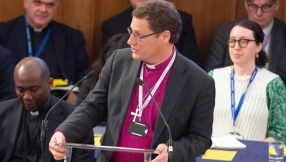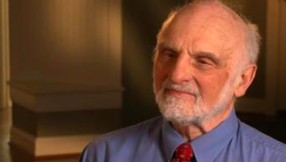
There are a couple of verses at the beginning of Luke's Gospel that we often skip over in our hurry to get on with the real story, which we think begins with the coming of the angel to Mary and the birth of Jesus. But they're actually highly significant.
Luke was an educated man who knew the importance of checking his sources and getting the story right. In his first chapter, in verses 3-4, he tells Theophilus that he has written "so that you may know the certainty of the things you have been taught". In other words, he was giving Theophilus a solid intellectual grounding for the beliefs he had picked up through his regular worship in church.
Assuming Theophilus was a real person (the name means "lover of God" and some people think it might have been a general term for Luke's readers), what we don't know, is how he felt about some of the things Luke left out.
We know from other very early sources that there were all sorts of stories about Jesus around in the early Church, some of them very odd indeed. Some of them are preserved in documents like the Gospel of Thomas, which has a story about the child Jesus making birds out of clay, breathing on them and bringing them to life. That's quite sweet, but another story has him cursing a boy, who falls dead while his parents become blind. He's also supposed to have healed James from a snakebite and miraculously stretched a beam of wood to help his father finish a job he was working on.
By leaving stories like this out, Luke was saying "I don't think these are true." We know how threatening people find it when cherished assumptions are challenged, so this was potentially a brave thing to do.
1,900 years after Luke wrote, we rely on the four Gospels to tell us about Jesus. But the work of understanding them and applying them to our lives today goes on. Scholars, teachers and preachers have to try to distinguish between true and false interpretations of Scripture. Sometimes this means that we are disturbed by challenges to what we have assumed was true. Sometimes people get hurt. It's right that we should be slow to change, and that we should test the Scriptures and hold fast to what's good. But sometimes we can hold on to an opinion or an interpretation so strongly that our ears are closed to what God is saying to us.
The search for truth is costly, and places great responsibilities on us all: not just the scholars who make it their life's work, like Luke, but the rest of us who sit under their teaching. Grace, patience and a loving spirit are essential as we listen.
As one of the Pilgrim Fathers, John Robinson, said aboard the Mayflower on his way to the New World: "The Lord hath more truth yet to break forth out of His Holy Word."
Follow Mark Woods on Twitter: @RevMarkWoods













